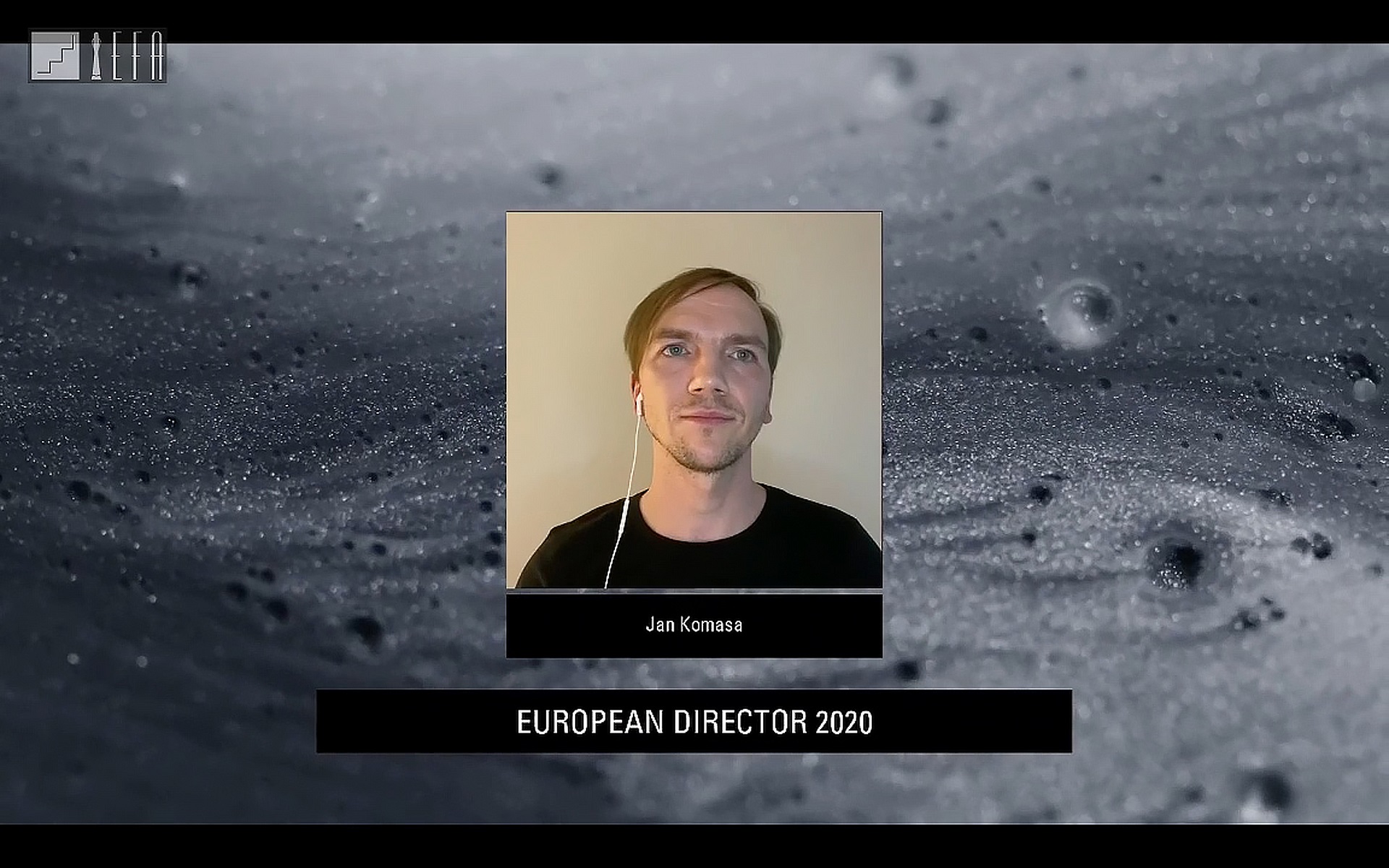طرأ في السنوات الأخيرة تغيّرٌ واضحٌ في استعمال الإنترنت، وخاصة شبكات التواصل الاجتماعي، وقد لاحظنا كيف أثر هذا التغيّر على الفرد والمجتمع، وعلى الصحفيين ومهنة الصحافة إجمالا.
في البدايات، كانت شبكات التواصل الاجتماعي تستخدم على مستوى شخصي يتمثل في التواصل مع الآخرين. ولكن مع مرور الوقت، بدأت شبكة الإنترنت ووسائل التواصل الاجتماعي تأخذ دورا أكبر على مستوى النقاش السياسي والصحفي والاجتماعي، لتنبثق عن ذلك إشكالية كبيرة ذات عواقب وخيمة.
يعالج فيلم "الكاره" للمخرج البولندي جان كوماسا، هذه الإشكالية وتداعياتها، وتدور أحداثه حول شابّ عشريني ينحدر من عائلة متوسطة ويدعى توماش (ماسياج موسيافسكي). بدأ توماش بالكذب على كل من حوله بعد طرده من كلية الحقوق، حين سيطر عليه الشعور بالضيق بسبب إحساسه الدائم بالدونية والرفض. طموحاته المظلمة كانت مناسبة تماما لوكالة تسويق وعلاقات عامة عبر شبكات التواصل الاجتماعي، وبراعته في عمله كانت مفتاحا لانخراطه في حملة لتشويه سمعة أحد المرشحين لرئاسة البلدية.
ويسلط الفيلم الضوء على على عملية تسويق الكراهية على الشبكات الاجتماعية، والأخبار الزائفة، والأساليب التي لا تتردد في استخدامها شركات التسويق والأحزاب السياسية، وكيف تؤدي هذه العمليات إلى الاضطرابات الاجتماعية وترويج للسلوك العنيف.
ليس لدى الشركة التي يعمل فيها توماش أي علاقة بالصحافة، ولكنها تعمل في ميدان الصحافة وتحاول تأدية أدوارها، وهذا مكمن المعضلة والخطر؛ فمثل هذه الشركات مستعدة للقيام بحملات التشهير، وإنشاء حسابات وهمية، وبث أخبار مزيفة لتدمير أي شخص إرضاءً لعملائها.
"كاره" فيلم نقدي فج تدور أحداثه حول الضوابط الشخصية والاجتماعية والصحفية والسياسية التي على الجميع استحضارها في حياتهم اليومية وأثناء عملهم.
ومع عمله في تشويه سمعة أحد السياسيين عن طريق بث الأخبار الكاذبة ومحاولة النيل من سمعته، يدخل توماش في سلسلة من التشابكات السياسية الخطيرة، فيجرب اللعب مع الأشباح، والصحفيين، والسياسيين، وترويج حملات الكراهية، ومكافحة الهجرة، والإسلاموفوبيا.
يثبت الفيلم أن نظام إنشاء الأخبار الكاذبة نظام موجود فعلا، وأنه ويعمل بطريقة شريرة، وأن جنود هذا النظام هم أشخاص عاديون، تُغسل أدمغتهم بالأخبار وبالتلاعب النفسي والمعلومات المغلوطة المنتشرة على شبكات التواصل الاجتماعي. وهذا ما يمكن إثباته اليوم بتصفح سريع لشبكات التواصل، ورؤية ما ينشر عبرها من أخبار مضللة.
وكذلك يوضح الفيلم كيف أن هذه النوعية من الأخبار الزائفة، يخطط لها داخل غرف الاجتماعات، لتبدأ بالانتشار والتضخم شيئا فشيئا، ويكشف كيف تقوم بعض شركات التسويق والعلاقات العامة، بإنشاء الحسابات الوهمية وشراء الحسابات، لبث الإشاعات ونشر الأكاذيب.
يؤطر الفيلم لفن صناعة الكراهية في وسائل التواصل الاجتماعي إن جاز التعبير، ويعرض صراع الفرد مع النخبة، مؤكدا أن المعلومات المضللة والتشهير على وسائل التواصل هي أسلحة غير أخلاقية.
ويشير الفيلم إلى الطريقة التي تستغل بها هذه الشركات (الصحفية وغير الصحفية) الظروف الاجتماعية وهشاشة الفرد لإدخاله في مسار معقد وخطير، يؤسس لنشر خطاب الكراهية على شبكة الإنترنت. ولهذه الدوامة تداعيات خطيرة ومأساوية في الحياة الواقعية، تؤدي إلى عواقب وخيمة في النهاية، وتعيد إلى الأذهان الجرائم الجماعية الفظيعة.
يعكس الفيلم تصاعد العنف السائد، ويتناول قضايا راهنة عديدة: انتهاك الخصوصية، والتحريض على الكراهية والعنصرية، والقومية، والاستخدام المشوه لوسائل التواصل الاجتماعي، ونشر الأخبار الكاذبة. ويتيح للمشاهد فرصة مراجعة الجانب الفاسد للفرد والمجتمع الذي ينتمي إليه، وكيفية حماية نفسه من هذه القضايا الخطيرة.
تمثل شبكات التواصل الاجتماعي أداة ممتازة للصحافة وللأشخاص الذين يتبادلون المعلومات والآراء، فهي الوسيلة الأسهل في تعميم المعلومة بسرعة دون التحقق من المصدر أولا. ولكن لهذا العالم الافتراضي تأثيرات مباشرة على المجتمع.
نظام للتحكم والتلاعب بالمعلومات، يدار من وراء لوحة مفاتيح، ومن خلال شبكة منظمة وفعالة جدا، بحيث لا تؤثر فقط على نجاح أو فشل الأعمال، بل إنها قادرة حتى على تغيير نتيجة الانتخابات السياسية والنظام العام في البلاد.
المنطق الدقيق للإنترنت، والشبكات الاجتماعية، والتلاعب بالبيانات، والصور، والعقول الضعيفة؛ أسلحة صامتة يستخدمها توماش ليصنع مسيرته المهنية مخفيا هويته ومشاعره الخاصة. ولهذا السبب يصبح بطلا، فهو وحش غير مرئي، ولكنه شخص مثالي في نظر المجتمع.
لديه عشرات الهُويات المختلفة في اليوم، ويقوم بإنشاء ملفات تعريف وأحداث وعلامات تصنيف وأخبار مزيفة بهدف خفض شعبية المؤثرين، وتشويه سمعة السياسيين نيابة عن خصومهم أو لأي سبب آخر، تلك هي الصورة التي يقدمها الفيلم عن الشخص الذي يقوم بفبركة الأخبار.
كما يلفت النظر إلى قضية خطيرة جدا، وهي كيف يستعمل هذا الشخص السرية التامة للتواصل مع أشخاص لديهم اضطرابات اجتماعية وقومية وعنصرية، ليكونوا هم السلاح الذي بين يديه على الأرض، بينما يبقى هو خلف الشاشة لإخفاء جوهره وشخصيته الحقيقية، وهو على استعداد للعب أي لعبة من أجل الوصول إلى الهدف.
يتنقل الفيلم بين الواقعي والافتراضي، ويتناول تأثير ألعاب الفيديو، والدردشات، ووسائل التواصل الاجتماعي، ومقاطع اليوتيوب، ودورها في نشر الأخبار الزائفة.
ونكون، نحن المشاهدين، الشاهد الصامت على أفعال توماش، نعرف تماما ما يحدث أمامنا: الأخبار الكاذبة، والدوافع، وردود الفعل، وطبعا العواقب. ويتركنا نطرح على أنفسنا بعض الأسئلة؛ فهل نحن كأفراد وصحفيين وعمال وسياسيين، واعون بخطورة هذه الأخبار وعواقبها على مجتمعاتنا؟ وهل نفعل أقصى ما يمكن لمحاربتها بدءا من أنفسنا كمسؤولين في المجتمع؟


















![Palestinian journalists attempt to connect to the internet using their phones in Rafah on the southern Gaza Strip. [Said Khatib/AFP]](/sites/default/files/ajr/2025/34962UB-highres-1705225575%20Large.jpeg)





















